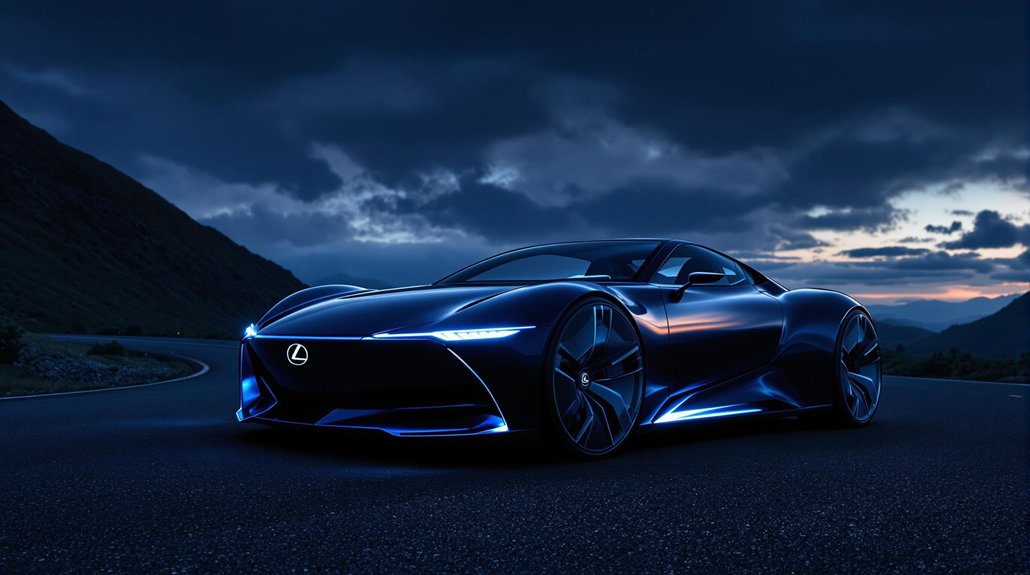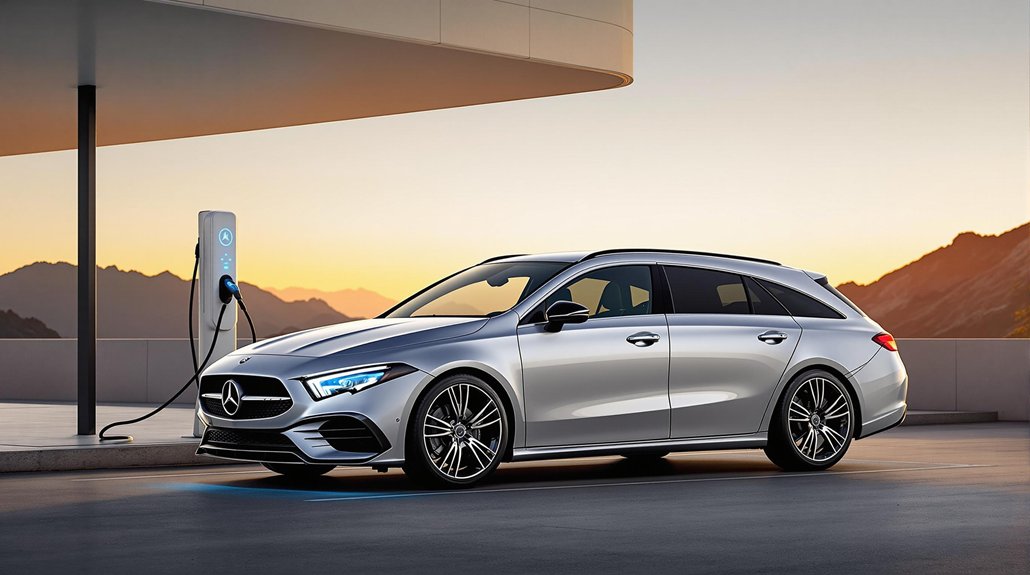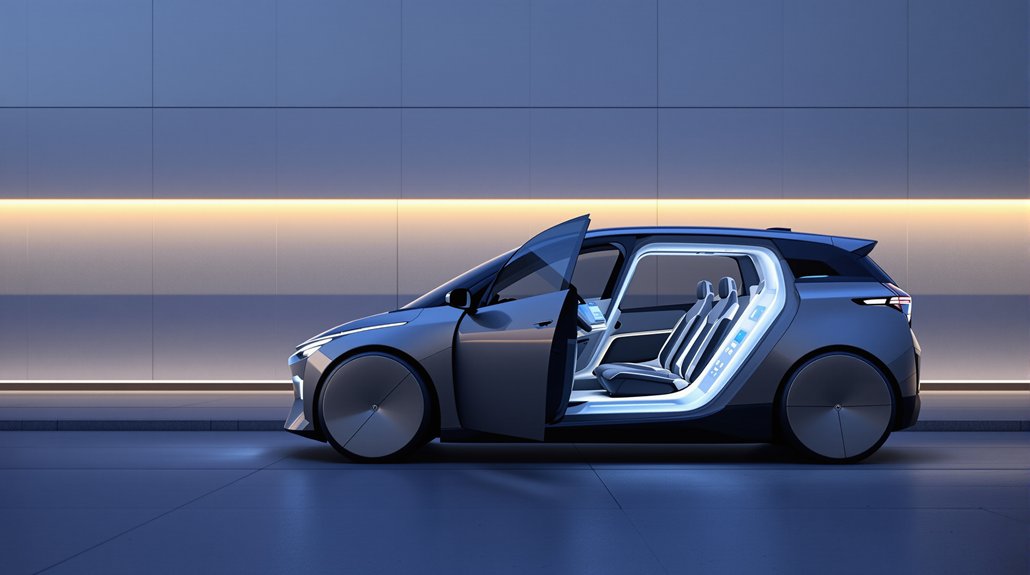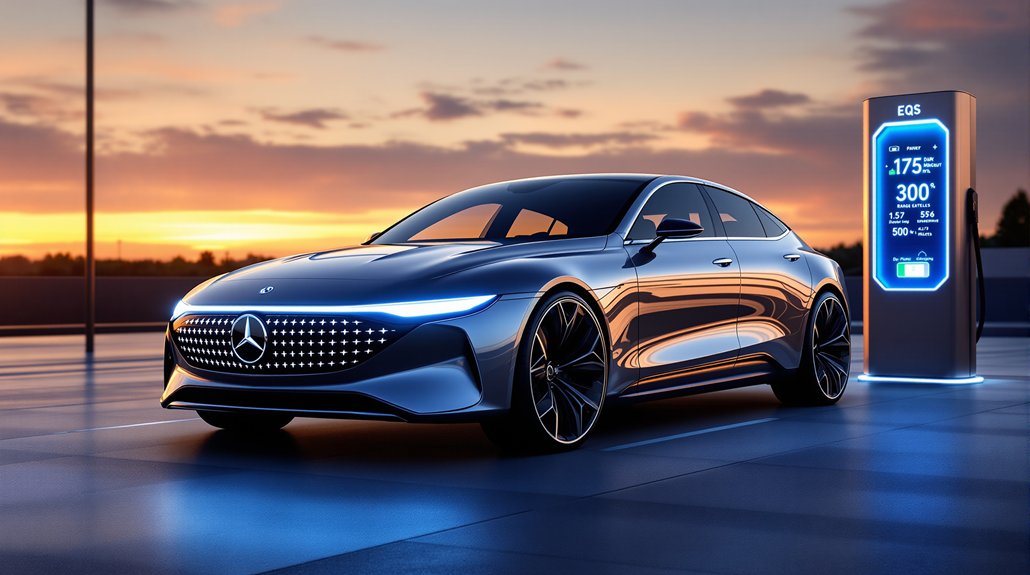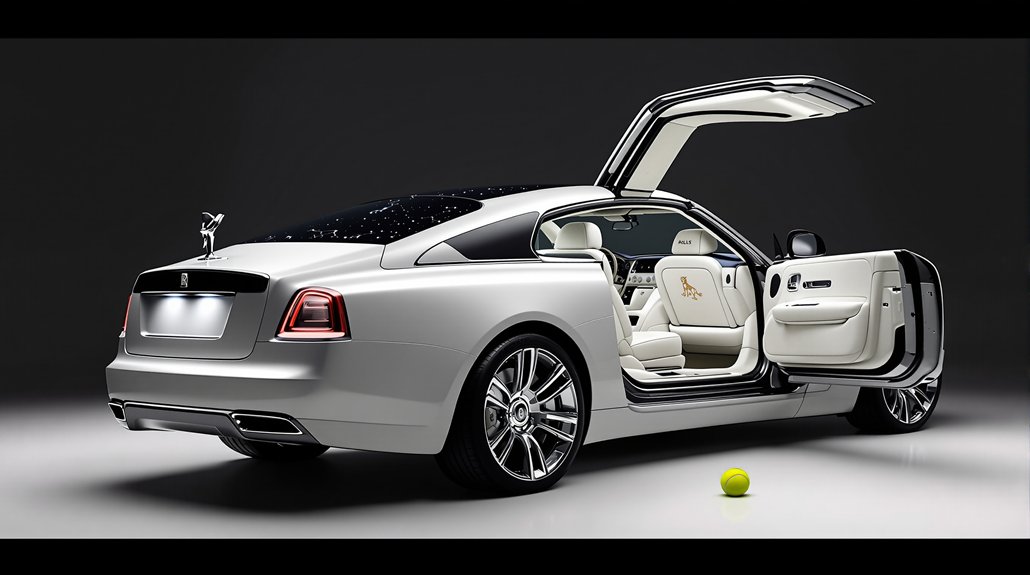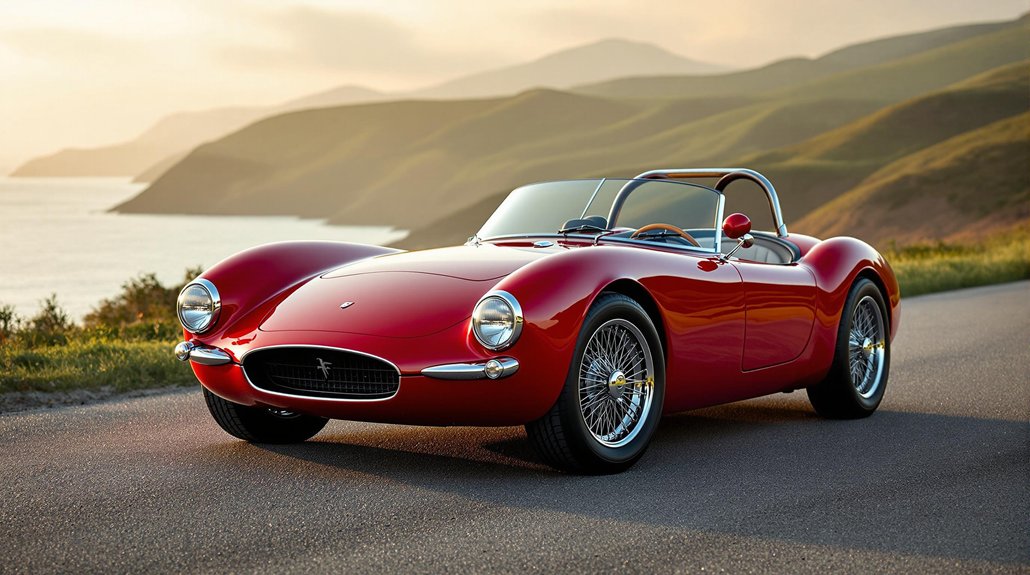Lexus has released an extensive electric vehicle strategy that promises to reshape the premium EV landscape over the next three years. The Japanese luxury brand is set to introduce a thorough lineup including the BEV ES sedan in 2025, a large three-row BEV SUV in mid-2026 (potentially named “TZ”), and both next-generation SUV and coupe models in 2027. This aggressive product roadmap clearly signals Lexus’ commitment to establishing dominance across multiple segments of the electric marketplace.
Lexus is aggressively expanding its electric portfolio to dominate premium EV segments through 2027 with an ambitious multi-vehicle strategy.
The technological centerpiece of Lexus’ EV revolution is the innovative Interactive Manual Drive system, which electronically simulates the sensation of shifting gears in a traditional manual transmission. I’ve seen several attempts at creating driver engagement in EVs, but this approach seems uniquely promising. The system meticulously replicates clutch response and even simulates stalling, offering unprecedented engagement for driving enthusiasts who’ve been hesitant about moving to electric platforms. The system features eight virtual gears that enhance driving engagement through paddle shift controls on the steering wheel.
Performance credentials for current models establish a solid foundation for future offerings. The RZ300e delivers 201 horsepower with up to 266 miles of range, while the more potent RZ450e produces 308 horsepower, achieves 0-60 mph in just 4.6 seconds, and offers 220 miles of range. The upcoming BEV ES sedan is expected to deliver significant improvements over the RZ’s range and power specifications. The newly introduced RZ F SPORT variant further amplifies performance while maintaining the brand’s signature luxury ride quality.
Inside the cabin, Lexus maintains its reputation for excellence with 14-inch touchscreens, premium materials, and thorough connectivity through wireless Apple CarPlay and Android Auto. The emphasis on noise reduction creates an exceptionally quiet driving environment – critical for luxury EV buyers expecting serenity.
Lexus has also made significant strides in practical EV considerations, implementing a revised battery electric system with reduced charging times and incorporating a steer-by-wire system that enhances handling precision. The vehicles leverage advanced AI technology to optimize battery management for extended lifespan and improved performance.
These advancements, combined with the brand’s distinctive approach to driving dynamics, position Lexus to attract both technology enthusiasts and driving purists – a rare achievement in today’s increasingly homogenized electric vehicle market.
